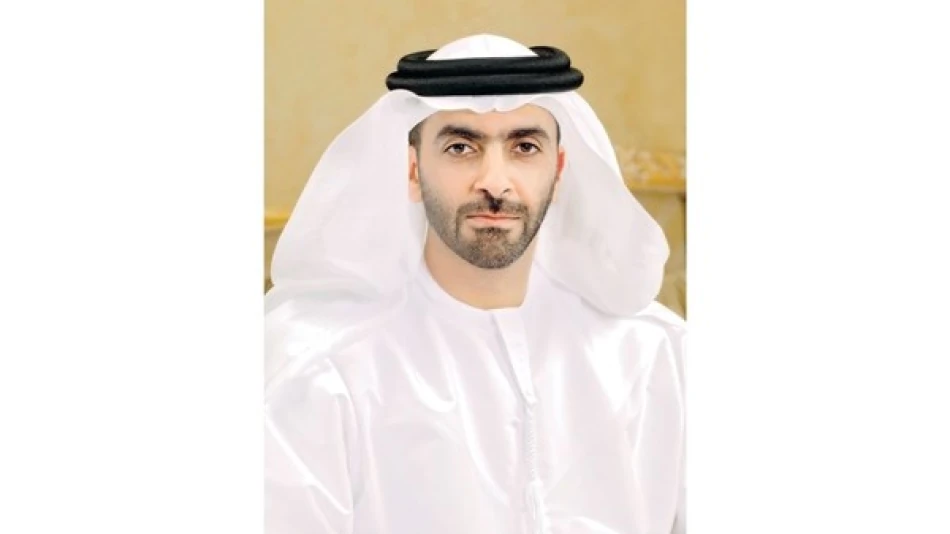
Sheikh Saif bin Zayed Visits Abu Dhabi International Hunting and Equestrian Exhibition
UAE Deputy PM Champions Cultural Heritage as Nation Balances Tradition with Modern Ambitions
Sheikh Saif bin Zayed Al Nahyan's visit to the Abu Dhabi International Hunting and Equestrian Exhibition underscores the UAE's strategic emphasis on preserving Emirati identity while positioning itself as a global cultural hub. His remarks highlight how the nation is leveraging traditional sports and heritage as soft power tools in an increasingly competitive regional landscape.
High-Level Endorsement Signals Cultural Policy Priority
The Deputy Prime Minister and Minister of Interior's attendance at the exhibition demonstrates the government's commitment to cultural preservation at the highest levels. Sheikh Saif described the event as a "global platform that embodies the UAE's vision of combining culture and sport while reviving our prestigious heritage."
This official backing reflects a broader strategy where the UAE uses cultural events to strengthen national identity while attracting international attention and investment in the heritage tourism sector.
Youth Engagement Strategy Takes Center Stage
During his tour of the exhibition, Sheikh Saif emphasized the role of young Emiratis in "carrying the message of heritage and shaping a brighter future." This focus on youth participation addresses a critical challenge facing Gulf nations: how to maintain cultural authenticity as younger generations become increasingly globalized.
Bridging Generational Divides
The exhibition's success in "connecting past and present" represents a calculated approach to cultural continuity. By engaging youth in traditional activities like hunting and equestrian sports, the UAE is creating pathways for cultural transmission that don't rely solely on formal education or family structures.
Regional Competition for Cultural Leadership
The UAE's investment in heritage exhibitions comes as Gulf nations compete for cultural and tourism leadership. Saudi Arabia's Vision 2030 includes massive cultural projects, while Qatar leveraged the World Cup to showcase its heritage. The UAE's approach through traditional sports offers a more authentic alternative to mega-projects.
Unlike Saudi Arabia's focus on entertainment mega-cities or Qatar's sports diplomacy, the UAE is positioning itself as the guardian of authentic Arabian culture, potentially appealing to both regional populations and international visitors seeking genuine cultural experiences.
Economic Implications Beyond Tourism
While heritage preservation might seem purely cultural, it carries significant economic weight. The global heritage tourism market is valued at over $15 billion annually, and the UAE is positioning itself to capture a larger share through authentic offerings.
Moreover, cultural soft power translates into business advantages. Companies and investors increasingly consider cultural stability and national identity strength when making long-term investment decisions, particularly in uncertain geopolitical climates.
Balancing Act in a Changing Region
Sheikh Saif's emphasis on the UAE's ability to "harmonize authenticity with the spirit of the times" reflects the delicate balance the nation must maintain. As the region faces rapid social change, economic diversification pressures, and generational shifts, maintaining cultural identity becomes both more challenging and more crucial.
The success of such initiatives will likely influence whether the UAE can maintain its unique position as a modern, globally connected nation that hasn't sacrificed its cultural foundations—a model that other developing nations are watching closely.
Most Viewed News

 Layla Al Mansoori
Layla Al Mansoori






